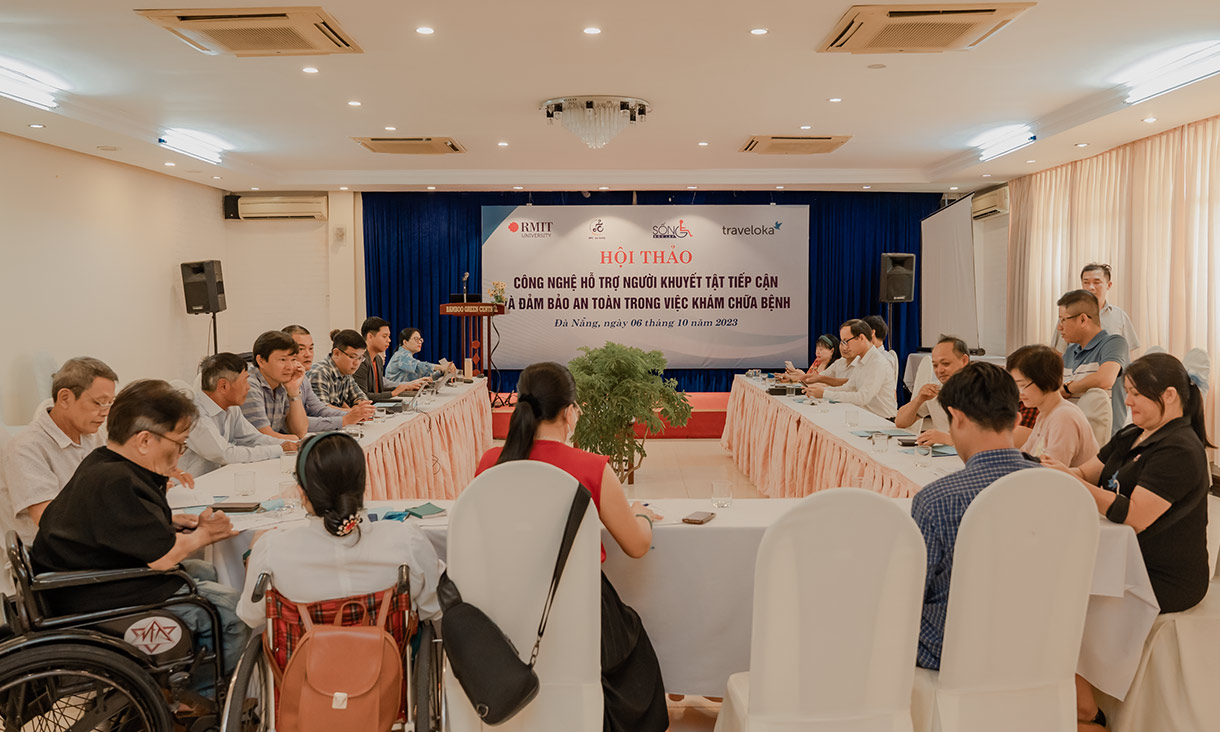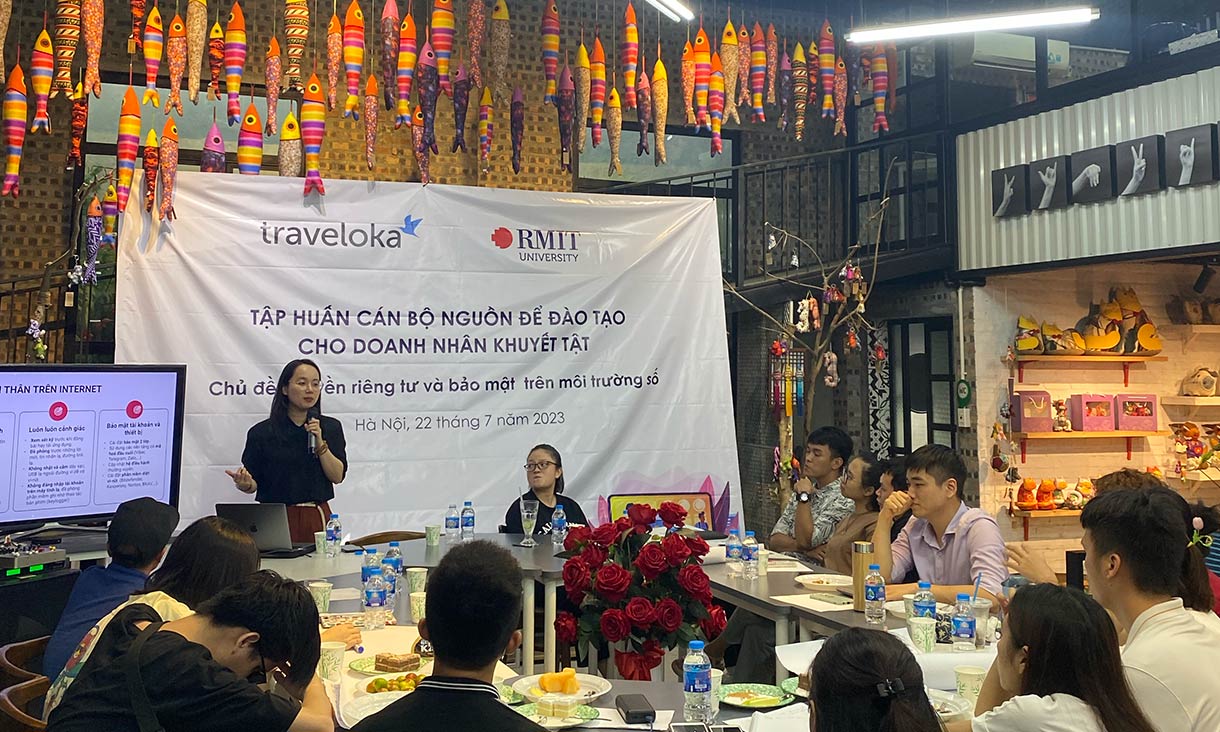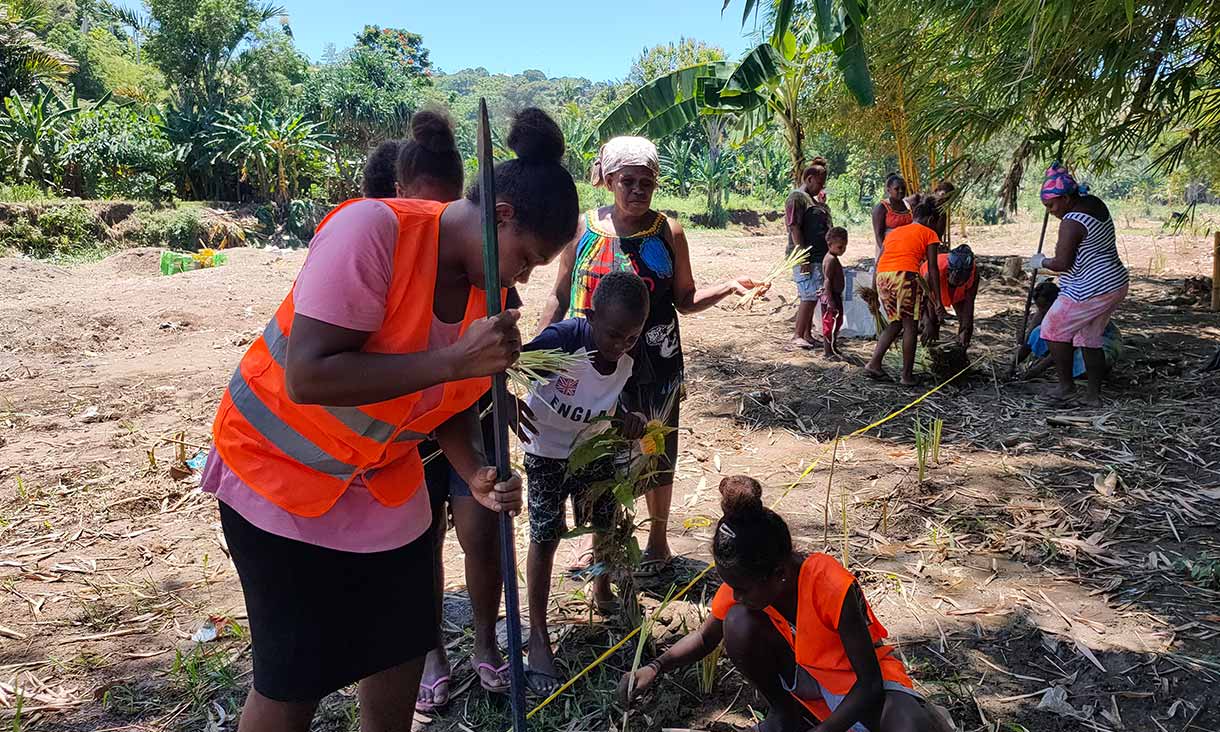The onset of the global COVID-19 pandemic highlighted an urgent need to develop more inclusive responses to critical health issues in Southeast Asia.
The World Health Organisation classified people with a disability as one of the most vulnerable populations affected by the pandemic, yet Dr Rohman said that in Southeast Asia, specific vaccination guidelines for people with a disability were scarce.
As a result, vaccine hesitancy and uptake remain key issues.
“Those with a disability in our communities encountered numerous obstacles to obtaining COVID-19 vaccinations, from gathering information, to registering for their vaccinations and navigating vaccination sites,” he said.
Information needs to be accessible for people with a range of disabilities including deafness and hearing or visual impairment and cognitive disability.
“Although many people wanted to be vaccinated, they were unclear about which vaccine was safe and effective for them, or which accessibility features were present at vaccination sites,” he said.
The RMIT research team suggested ways to design an equitable vaccination program, including presenting vaccine-related information in an accessible format for people with a range of disabilities and disseminating it through multiple channels online and/or in-person settings with sign language interpreters.
A clear policy brief was developed to help policy makers, mainstream communication agencies, relevant organisations and stakeholders to develop equitable communication policies and programs that are accessible to all people with disabilities. It was circulated to more than 30 organisations of people with disabilities in Vietnam and discussed with a range of stakeholders in Ha Nam and Da Nang.








